’50 M.D. — Francis A. Wood of West Caldwell, N.J., Aug. 15, 2024; neurosurgery. Dr. Wood completed his internship at the Hospital of the University of Pennsylvania, where he met his wife, Dr. Mary Caroline McNeal. He then completed residencies in neurology and neurosurgery. In 1957, Dr. Wood and his family spent a year in Paris, where he was a Fulbright Scholar. He practiced adult neurosurgery in Montclair, N.J., and at the East Orange Veterans Administration Hospital, and pediatric neurosurgery at what is now Children’s Hospital of New Jersey, in Newark. Dr. Wood served as chair of the board of the Kessler Institute for Rehabilitation and chaired the Montclair chapter of the American Red Cross and the Family Service Bureau of Newark and West Hudson. He also served for many years on the board of the Newark Museum of Art.
’51 M.D. — Howard C. Lucas of Winter Haven, Fla., May 8, 2024; ophthalmology. During World War II, Dr. Lucas volunteered for the U.S. Army and served as a field medic with the 172nd General Hospital in Shanghai, China. Dr. Lucas completed his residency in ophthalmology at what is now NewYork-Presbyterian/Columbia University Irving Medical Center and returned to his hometown of Winter Haven to open the first ophthalmology practice there. He continued his practice until 2020, when he retired at the age of 95. Throughout his medical career, he served the community by providing medical care and improving the vision of countless patients, even if they could not pay.
’52 M.D. — Thomas Killip III of Easthampton, Mass., on Sept. 8, 2024; cardiologist and coronary care unit (CCU) pioneer. Dr. Killip, widely regarded as a founding father of modern cardiology, was a principal investigator of the Coronary Artery Surgery Study, an early proponent of the CCU and the developer — with fellow Weill Cornell Medicine cardiologist Dr. John Kimball — of the Killip Classification of Myocardial Infarction (MI), a clinical tool used to assess the post-MI severity of heart failure. After graduating from medical school, he completed his residency at what is now NewYork-Presbyterian/Weill Cornell Medical Center, where he later became an attending physician and chief of the Division of Cardiology. Dr. Killip served as Weill Cornell Medicine’s Roland Harriman Professor of Cardiovascular Medicine from 1968–1974. He subsequently held positions as professor of medicine at Northwestern University, the University of Michigan, the Icahn School of Medicine at Mount Sinai and the Albert Einstein College of Medicine. Dr. Killip also served as executive vice president and interim CEO of Mount Sinai Beth Israel. During his influential career as a researcher and physician, he published more than 100 original papers, contributed chapters on cardiology to major textbooks and lectured internationally. He was involved in many National Institutes of Health (NIH) studies and work groups, including serving as project director for the 1967–1974 NIH Myocardial Infarction Research Unit. In 2000, he received the Weill Cornell Medical College Alumni Award of Distinction, which recognizes alumni who have demonstrated exceptional achievement in education, research or patient care. A lifelong birder, avid sailor and passionate photographer, he occupied his last years with photography and bird-watching from his living room window. Dr. Killip’s innovations contributed to a sea change in modern medicine and had a lasting impact on the field of cardiology.
’53 M.D. — Robert S. Grayson of Livingston, N.J., Aug. 13, 2024; psychiatry. After serving as chief resident in psychiatry at Strong Memorial Hospital and as a captain in the U.S. Army, Dr. Grayson went on to run the psychiatry department at the U.S. Army hospital in Puerto Rico. In addition to compassionately treating many patients over the decades, Dr. Grayson taught medical students and psychoanalysis trainees, served on professional boards and committees, presented at conferences, and authored numerous academic articles and book chapters. He was a proud and active member of the New York Psychoanalytic Society & Institute and served for two years as its president. In 2006, Dr. Grayson received the New York Psychoanalytic Society & Institute’s Brill Lecture Award, an honor that culminated in him delivering an incisive talk on psychiatry ethics.
’54 M.D. — Norman S. Lichtenstein of Brookline, Mass., June 18, 2024; nephrology. Dr. Lichtenstein completed his residency at Yale University and a fellowship in nephrology at Massachusetts General Hospital. He practiced nephrology at Massachusetts General Hospital and was a clinical instructor at Harvard Medical School. He was loved and respected by his students and his fellows for his teaching expertise. Dr. Lichtenstein and his wife traveled widely and shared a love of France, opera, art and architecture. He was a lifelong learner with a passion for history, particularly military history.
’58 — Irwin Merkatz of Rye, N.Y., Oct. 31, 2024; obstetrics and gynecology. Dr. Merkatz completed his internship and residency training in obstetrics and gynecology at what is now NewYork-Presbyterian/Weill Cornell Medical Center and then served as a captain in the U.S. Army. He completed a fellowship in maternal-fetal medicine at UCLA and became one of the first obstetricians to focus on high-risk pregnancy. He was a professor and chair emeritus of the Department of Obstetrics & Gynecology and Women’s Health at the Albert Einstein College of Medicine, where he served as chair for 34 years, and focused on early identification of women at risk for adverse pregnancy outcomes and the importance of ensuring early pregnancy care. His passion for advancing obstetrical care extended internationally and included a program in Rwanda to reduce maternal mortality and morbidity.
’58 M.D. — John T. Queenan of Washington, D.C., Sept. 21, 2024; obstetrics and gynecology. Dr. Queenan completed his residency in obstetrics and gynecology at what is now NewYork-Presbyterian/Weill Cornell Medical Center. He served as professor and chair of obstetrics and gynecology, first at the University of Louisville School of Medicine and then at Georgetown University School of Medicine, where he was chair emeritus until his retirement. From 1976–1987, he chaired the Fetal Monitoring Committee for the FDA. He authored scientific journal articles, numerous book chapters and influential textbooks, and was the deputy editor of Obstetrics & Gynecology (known as “The Green Journal”). His pioneering research and work in Rhesus (Rh) disease of pregnancy with amniocentesis, amniotic fluid analysis, intrauterine transfusions and Rh-immune prophylaxis is recognized internationally.
’60 M.D. — Alvin Poussaint of Chestnut Hill, Mass., Feb. 24, 2025; psychiatry. Dr. Poussaint completed his residency at the University of California, Los Angeles, where he also received a master’s degree in pharmacology. He served on the faculty at Tufts University School of Medicine before joining Harvard University in 1969; he remained there until his retirement in 2019. As faculty associate dean for student affairs and founding director of Harvard Medical School’s Office of Recruitment & Multicultural Affairs, Dr. Poussaint was instrumental in building diversity and inclusion at the medical school and the Harvard School of Dental Medicine. Over his 50 years at Harvard, he recruited and mentored nearly 1,400 students of color and established supplemental educational programs to help students from underrepresented groups achieve successful careers in medicine. Widely published, Dr. Poussaint was a distinguished life fellow of the American Psychiatric Association, a fellow of the American Association for the Advancement of Science, a life member of the American Academy of Child and Adolescent Psychiatry and a member of the American Academy of Arts and Sciences.
’62 M.D. — Robert Appleby MacLean of Houston, Texas, Aug. 18, 2024; internal medicine. Dr. MacLean dedicated his professional career to supporting the public health needs of his adopted state of Texas. During his distinguished career, he served as deputy director of Houston Department of Public Health and acting commissioner in Austin with the Texas Department of Health. Among his many interests, Dr. MacLean had a passion for sailing and the sea and maintained a sailboat for many years.
’62 M.D. — Barry Richard Tharp of Davis, Calif., Dec. 5, 2024; child neurology. Dr. Tharp completed his residency in neurology at Duke University School of Medicine, which was interrupted by two years of service in the U.S. Army Medical Corps at Edgewood Arsenal. He received an NIH-sponsored fellowship in neurology and electroencephalography at Stanford School of Medicine, eventually becoming the director of child neurology and head of the electroencephalography laboratory. He continued to have a distinguished career in academic medicine, joining the faculty at Baylor College of Medicine and later heading child neurology at the University of California, Davis School of Medicine. After retiring in 2006, Dr. Tharp continued to teach at UC Davis in the medical center and at the UC Davis School of Veterinary Medicine. He authored more than 100 peer-reviewed papers, traveled internationally as a visiting professor, completed multiple fellowships abroad and served as president of several medical societies.
’63 M.D. — Dennis P. Berk of Concord, Mass., Sept. 23, 2023; gastroenterology. Dr. Berk completed his gastroenterology internship and residencies in Madison, Wis., and Los Angeles, and at Tufts University School of Medicine. He then served two years in the U.S. Army Medical Corps in South Korea and at Fort Devens, Mass. Dr. Berk established the first gastroenterology service at Emerson Hospital in Concord, Mass., pioneering the use of the state’s second gastroscope. He continued to practice internal medicine and gastroenterology at Emerson Hospital for 45 years. Dr. Berk deeply valued the care of his many patients. He was married to his beloved wife, Elizabeth (Trull) Berk, for 49 years. They shared many passions over their life together, including visiting the Caribbean islands, playing golf and tennis, and skiing at Okemo Mountain. Dr. Berk emphasized the importance of education and was devoted to his family.
’63 M.D. — Everett G. Heinze Jr. of Austin, Texas, Dec. 19, 2024; psychoneurology. Dr. Heinze completed his postgraduate training at Henry Ford Hospital in Detroit. From 1967–1969, he served in the U.S. Army Medical Corps, including a one-year tour of duty in Vietnam, and was awarded a Bronze Star Medal for his service. Upon returning to the United States, Dr. Heinze pursued a residency in neurology at the Mayo Clinic and then joined the Austin Diagnostic Clinic, where he collaborated with other physicians to bring the first CT scanner to Austin. He served as medical director of St. David’s HealthCare’s rehabilitation program and established rehabilitation programs at St. David’s North Austin Medical Center and its Round Rock Medical Center. He had an interest in innovation and alternative medicine and was appointed by then-Gov. George W. Bush to serve an eight-year term on the Texas State Board of Acupuncture Examiners.
’64 M.D. — Charles “Chuck” R. Steinberg of New York, Dec. 27, 2024; professor emeritus of clinical medicine. A native of New York City, Dr. Steinberg acquired his medical degree from Weill Cornell Medicine and completed his residency at what is now NewYork-Presbyterian/Weill Cornell Medical Center. Known to all as “Chuck,” Dr. Steinberg’s compassion and dedication to medicine was quickly recognized. After serving as chief medical resident, Dr. Steinberg completed his fellowship in infectious diseases at NewYork-Presbyterian/Weill Cornell. He went on to become one of the Weill Department of Medicine’s most prominent physicians, serving as a beloved clinician, professor and mentor for more than 50 years. Dr. Steinberg’s legacy is anchored in his profound commitment to medical education and patient care. The Charles R. Steinberg, M.D. Clinical Scholar Award in Infectious Diseases was established in his honor.
’64 M.D. — Sarah D. Blumenschein of Arlington, Texas, Oct. 25, 2024; pediatric cardiology. Dr. Blumenschein was a leader in the diagnosis and treatment of familial hypercholesterolemia in the U.S. and was much loved and admired by her patients and colleagues at Children’s Medical Center, University of Texas Southwestern, where she served for more than 35 years. Dr. Blumenschein was an associate professor in the Department of Pediatrics and director of the preventive cardiology clinic. She was one of four women in her class at Weill Cornell Medical College, where she met her husband, George R. Blumenschein, M.D. ’63. After graduating from medical school, she completed her internship at what is now NewYork-Presbyterian/Weill Cornell Medical Center, her residency in pediatrics at The Johns Hopkins Hospital and a fellowship in pediatric cardiology at Duke University before joining Texas Children’s Hospital. Dr. Blumenschein continued to work into her 80s and mentored hundreds of doctors during her six-decade career. She was the daughter of Dr. John E. Deitrick, dean from 1957–1968 of what is now Weill Cornell Medicine.
’67 M.D. — Kermit Dewey of Dartmouth, Mass., Feb. 19, 2021; radiology. Dr. Dewey completed his internship at the University of Michigan and his residency at what is now NewYork-Presbyterian/Weill Cornell Medical Center. He started his career in radiology in the U.S. Navy in Newport, R.I., and practiced for more than 30 years in Fall River, Mass., until his retirement in 2001. He also served as a director of Lafayette Federal Savings Bank from 2000–2008. He loved music and cherished spending time with his family, sailing Buzzards Bay, traveling the world and volunteering at the New Bedford Whaling Museum library.
’69 M.D. — John Gallin of Bethesda, Md., Oct. 10, 2024; longest-serving director of the National Institutes of Health (NIH) Clinical Center. His career at the NIH spanned more than 50 years, including 23 years as leader of its research hospital (1994–2017). Dr. Gallin joined the NIH in 1971 for postdoctoral training in the National Institute of Allergy and Infectious Diseases (NIAID). He subsequently served as NIAID’s scientific director for intramural research activities, founding chief of NIAID’s Laboratory of Host Defenses, NIH associate director for clinical research, and chief scientific officer of the NIH Clinical Center. He developed the hospital’s research portfolio, created the Patient Advisory Group, established the Department of Bioethics and was instrumental in the creation of the Edmund J. Safra Family Lodge. In 1995, he developed a curriculum in clinical research that now reaches 25,000 students in 168 countries. He also led efforts to build the Mark O. Hatfield Clinical Research Center, which opened to patients in 2005. His work led to the NIH Clinical Center receiving the 2011 Lasker~Bloomberg Public Service Award. In 2018, he and his wife, Dr. Elaine Gallin, launched and funded the Trailblazer Prize for Clinician-Scientists at the Foundation for the National Institutes of Health. He retired from the NIH in 2023. Throughout his career, he was committed to research on rare immune disorders of phagocytes, with a focus on chronic granulomatous disease. Dr. Gallin was a member of the National Academy of Medicine, the Association of American Physicians, the American Society for Clinical Investigation, the American College of Physicians (Master) and the Royal College of Physicians of London. In 2022, he was awarded the Weill Cornell Medical College Alumni Award of Distinction. Dr. Gallin left a legacy that lives on at the NIH Clinical Center and in generations of clinician-scientists.
’73 M.D. — Philip McWhorter of Greenwich, Conn., Jan. 12, 2024; general surgery. Dr. McWhorter completed his residency at what is now New-York-Presbyterian/Weill Cornell Medical Center. He served as a surgeon at Greenwich Hospital for 44 years. During his tenure there, Dr. McWhorter held many leadership positions, including chief of staff during the capital campaign and construction of the current Greenwich Hospital, and chief of surgery. Honored to be able to help people heal, Dr. McWhorter was proud of his work as a physician, and many of his deepest and longest friendships were with his coworkers. But above all else, he was devoted to his family.
’77 M.D. — Charlotte Harris of Evanston, Ill., Sept. 10, 2024; rheumatology. Dr. Harris completed her postgraduate training at Northwestern Memorial Hospital and worked for many years at what is now Rush University Medical Center before returning to Northwestern for the final years of her career. Dr. Harris was an impassioned believer in the power of CAR-T therapies and the therapeutic breakthroughs being investigated at Northwestern with the potential to treat not only lymphoma, but other nonmyeloid forms of cancer. An avid outdoorswoman, Dr. Harris had a great passion for kayaking and travel, and a great love of animals. She was known for her determination, wicked sense of humor and sharp wit, and optimism and joy for life.
’79 M.D., ’78 Ph.D. — Samuel “Sandy” Silver of Ann Arbor, Mich., Aug. 14, 2024; hematology/oncology. Dr. Silver completed his internal medicine residency at the University of California, San Francisco and a fellowship in hematology/oncology at the University of Pennsylvania. He later trained in bone marrow transplantation at the Fred Hutchinson Cancer Center. After 36 years at the University of Michigan Medical School, Dr. Silver retired as professor of medicine in the Division of Hematology and Oncology in 2023 and became an emeritus professor. A Master of the American College of Physicians and a Fellow of the Royal College of Physicians, Dr. Silver was the recipient of numerous other honors and awards, including the Burgess L. Gordon Award from the American Medical Association, the Exemplary Service Award from the American Society of Hematology, and the inaugural Lifetime Achievement Award from the Michigan Society of Hematology and Oncology, for which he served as a past president.
’82 M.D. — Saundra E. (Whitney) Curry of Chappaqua, N.Y., Oct. 6, 2024; anesthesiology. Dr. Curry practiced anesthesiology at what is now NewYork-Presbyterian/Columbia University Irving Medical Center for nearly 40 years, from 1986–2024. The daughter of missionaries, she spent much of her childhood abroad, including two years in Paris and seven years in Cameroon. She maintained connections with many colleagues and was frequently invited to speak on medical topics in the U.S. and internationally.
’83 M.D. — Mark R. Depman of Northfield, Vt., formerly of New Haven, Conn., Nov. 11, 2024; emergency medicine. Dr. Depman completed his internship and residency at what is now NewYork-Presbyterian/Weill Cornell Medical Center. He had a long, respected career as an emergency room physician and studio artist.
’88 M.D. — Edward Jew of New York, April 22, 2024; obstetrics and gynecology. Dr. Jew completed his residency in obstetrics and gynecology at The Mount Sinai Hospital. He practiced at St. Luke’s-Roosevelt Hospital Center for more than 20 years, then joined a practice at NewYork-Presbyterian Lower Manhattan Hospital. Known for his calm demeanor, careful explanations and highly competent care, Dr. Jew retired in 2021. Sadly, he suffered a devastating stroke during a ski trip, and his organs were donated at the time of his passing. He is remembered for his intellect, humor, love of life and generosity of spirit.
Faculty
Abe M. Chutorian, M.D., of New York, Feb. 14, 2025; professor emeritus of neurology and of pediatrics. Dr. Chutorian received his medical degree from the University of Manitoba and trained in pediatrics at the University of Southern California’s Children’s Hospital in Los Angeles, followed by three years at the NIH. After completing a pediatric neurology fellowship at Columbia University’s Neurological Institute of New York, he joined the institute’s faculty. From 1990 until his retirement in 2005, he served as the director of the Division of Child Neurology at Weill Cornell Medicine. He was also the director of neurology at Hospital for Special Surgery for eight years. In 2017, Dr. Chutorian was honored with a lifetime achievement award from the Child Neurology Society, in recognition of his longtime commitment to advancing that field. He was a beloved physician, teacher and mentor whose talents were acknowledged by many professional awards, and his impact extended to countless trainees and colleagues.
George M. Lazarus, M.D., of New York, Jan. 23, 2025; adjunct clinical associate professor of pediatrics. Dr. Lazarus received his medical degree from what is now Columbia University’s Vagelos College of Physicians and Surgeons and completed his internship, residency and chief residency in pediatrics at what is currently NewYork-Presbyterian Morgan Stanley Children’s Hospital. A devoted primary care pediatrician, he was a champion for his patients and was one of the first clinicians to hold faculty appointments at both of NewYork-Presbyterian’s affiliated medical schools, Columbia and Weill Cornell Medicine. Dr. Lazarus was a remarkable educator who found joy in teaching newborn medicine to future pediatricians. He took care to remember each student by name and encouraged them to maintain a curiosity and hunger for learning throughout their training. The Dr. George M. Lazarus Newborn Nurseries at NewYork-Presbyterian Morgan Stanley Children’s Hospital are named in his honor.
Roberto Levi, M.D., of New York, Dec. 4, 2024; professor of pharmacology. Dr. Levi spent his entire academic career at Weill Cornell Medicine, joining the Department of Pharmacology in 1966 as a cardiovascular pharmacologist. His research in the Levi Lab focused on developing new therapeutic strategies to fight cardiovascular disease. He was also an active faculty member in the WCGS pharmacology Ph.D. program and associate editor of The Journal of Pharmacology and Experimental Therapeutics. Dr. Levi was born and raised in Italy and received his medical degree and a DSc (the equivalent of a doctorate) in pharmacology from the University of Florence. He completed his postdoctoral training at Johns Hopkins University as a Fulbright Scholar. His passion for science, his collegiality and his love of Weill Cornell Medicine will be deeply missed.
Nancy Nealon, M.D., of New York, Aug. 5, 2024; clinical assistant professor of neurology. Dr. Nealon joined the Department of Neurology at Weill Cornell Medicine in 1988 and was an expert in the diagnosis and treatment of multiple sclerosis. She took a special interest in neurology problems that affect women. Dr. Nealon completed her residency in internal medicine and neurology at what is now New-York Presbyterian/Weill Cornell Medical Center and a neuro-oncology fellowship at Memorial Sloan Kettering Cancer Center, followed by an EMG fellowship at Columbia University. During her time at Weill Cornell Medicine, she worked at both the Iris Cantor Women’s Health Center and the Judith Jaffe Multiple Sclerosis Center. Dr. Nealon was a beloved teacher of medical students and residents and, until the time of her death, was collaborating with residents in the preparation of scholarly articles.
Summer 2025 Front to Back
-
From the Dean
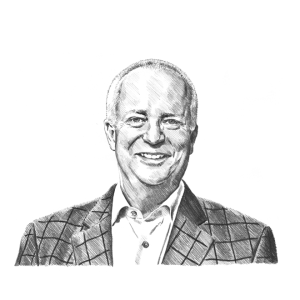
Message from the Dean
In times of uncertainty, the well-being of our patients remains our true north. -
Features
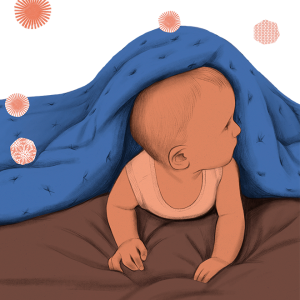
Good Medicine
New research aims to extend the power of existing vaccines — and develop even better ones in the future. -
Features

Labor of Love
Weill Cornell Medicine faculty seek to better integrate family and paid caregivers into the practice of medicine, guided by the knowledge that what’s good for the caregiver is good for the patient. -
Features
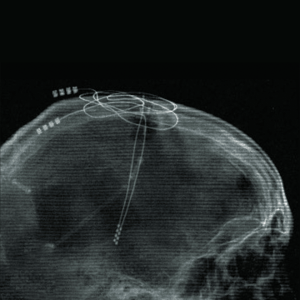
Rewired
Through deep brain stimulation and brain-computer interfaces, neurologist Dr. Nicholas Schiff (M.D. ’92) is pioneering efforts to improve life for patients with traumatic brain injury.
-
Notable
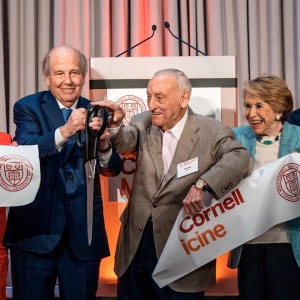
New Student Residence Completed
The new Feil Family and Weill Family Residence Hall offers a thriving environment for aspiring doctors, scientists, and health-care leaders. -
Notable
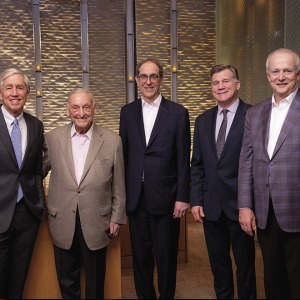
$50 Million Gift for Weill Cancer Hub East
At the Weill Cancer Hub East, experts from four leading research institutions will collaborate on research to understand the relationships between metabolism, nutrition, and cancer. -
Notable
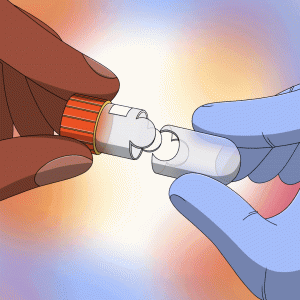
Dateline
Dr. Radhika Sundararajan has developed an intervention to work with traditional healers to address HIV in Uganda. -
Notable

Overheard
Weill Cornell Medicine faculty members are leading the conversation about important health issues across the country and around the world. -
Notable
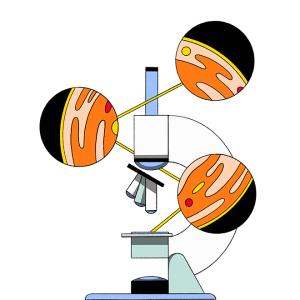
News Briefs
Notable faculty appointments, honors, awards and more — from around campus and beyond. -
Grand Rounds
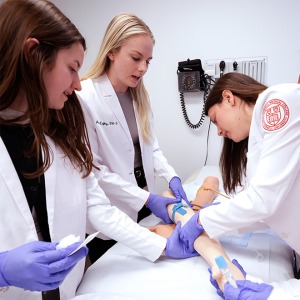
Physician Assistants to the Fore
Aspiring medical practitioners are flocking to Weill Cornell Medicine’s physician assistant program, helping to head off provider shortages and enhance patient care. -
Grand Rounds

Biomedical Entrepreneurial Thinking
The latest cohort of the Accelerating BioVenture Innovation program makes its pitches. -
Grand Rounds
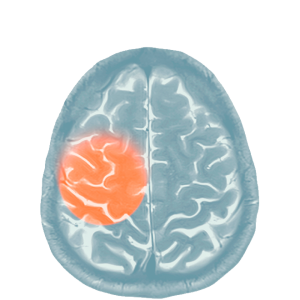
News Briefs
The latest on teaching, learning and patient-centered care. -
Discovery

Benfotiamine Boosts
Decades of work leads to clinical trial for early Alzheimer’s treatment. -
Discovery

Reducing Risk of Opioid Addiction While Alleviating Pain
A new study suggests that increasing the levels of naturally produced endocannabinoids may thwart the highly addictive nature of opioids while maintaining the drugs’ ability to relieve pain. -
Discovery
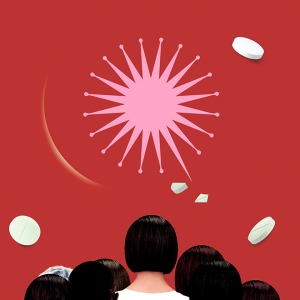
Findings
The latest advances in faculty research, published in the world’s leading journals. -
Alumni
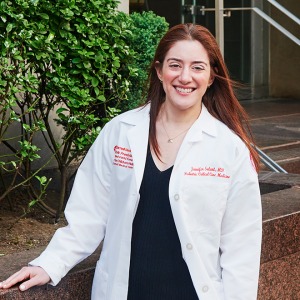
Profiles
From supporting critically ill children and their families to negotiating licensing deals for the world's first COVID-19 vaccine, our alumni are making an impact.
-
Alumni
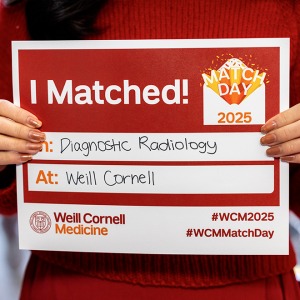
Notes
What’s new with you?
Keep your classmates up to date on all your latest achievements with an Alumni Note.
-
Alumni

In Memoriam
Marking the passing of our faculty and alumni. -
Alumni
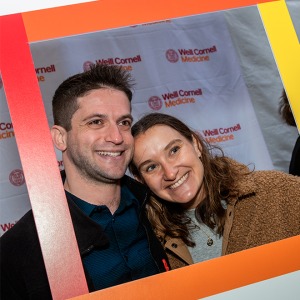
Moments
Marking celebratory events in the lives of our students and alumni, including Match Day and Commencement. -
Second Opinion

Image Making
How will today’s advances in radiology transform patient care? -
Exchange
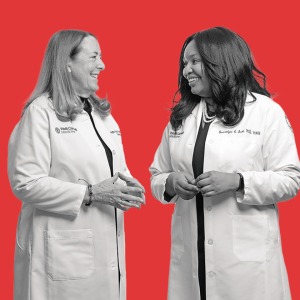
Community Outreach
A physician and a nurse discuss how engagement can transform community health and clinical practice. -
Muse

‘Settled’ by Nature
Dr. Nicole Goulet is a trauma and critical care surgeon who finds inspiration from being a lifelong athlete and outdoor enthusiast. -
Spotlight

Going Mobile
Dr. Robert Frawley (Ph.D. ’16) brings science to students aboard the BioBus.